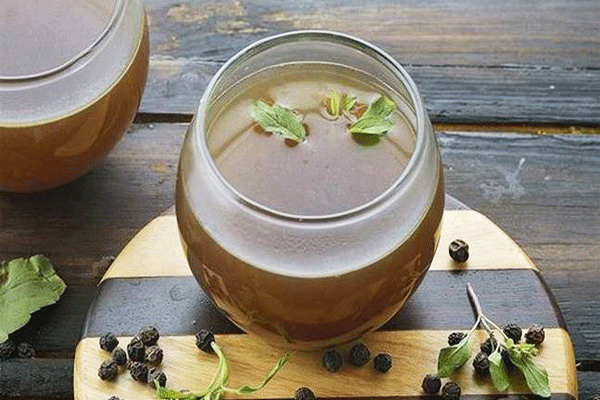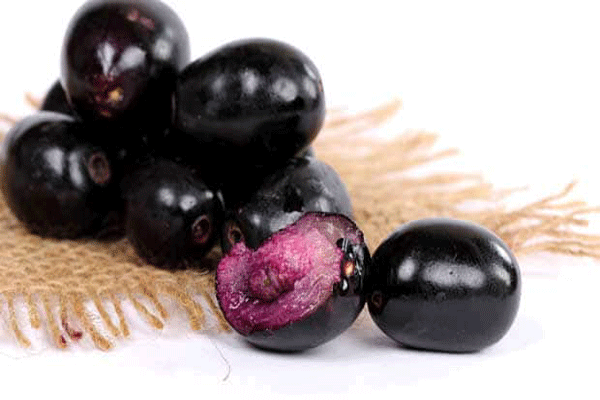Apricots offer numerous health advantages, including potential benefits for diabetes and heart health. Rich in antioxidants and fiber, apricots provide a nutritional boost and may lower the risk of specific cancers. Furthermore, they can assist in weight management. If you’re looking to shed pounds through dieting, incorporating apricot halves into your meals is a convenient way to reduce calorie intake without sacrificing flavor or satisfaction.
How many apricots should you eat per day?
“Apricots are a rich source of Vitamin A, fiber, and antioxidants with a low glycemic index, offering protection against aging and cancer.”
Apricots are suitable for the heart.
“Apricots are a heart-healthy fruit loaded with vital nutrients that enhance cardiovascular health. They are abundant in dietary fiber, aiding in cholesterol management and overall heart well-being. Apricots are also rich in vitamins C and A, along with potassium, all of which provide significant health benefits. Vitamin C, functioning as an antioxidant, shields the heart from oxidative stress and inflammation. Moreover, apricots promote blood vessel health and assist in collagen production, crucial for maintaining strong arterial walls.”
“Apricots contain beta-carotene, a type of vitamin A, which promotes the health of heart tissues, regulates blood pressure, and contributes to overall cardiovascular well-being.”
Potassium, an electrolyte abundant in apricots, helps balance bodily fluids and ensures proper heart rhythm. Ample potassium intake is associated with lower blood pressure and a reduced risk of heart disease.
“Include apricots in a balanced diet with diverse foods for heart health. Consult a healthcare professional or dietitian for personalized advice, especially if you have specific dietary needs. Apricots are a nutritional boon for your heart.”
High blood pressure control
Dried apricots are a great way to increase your potassium intake in your diet. Dried apricots have three times as much potassium as bananas. They also have very little salt, which helps maintain healthy blood pressure and provides protection against heart diseases. If you’re searching for a nutritious snack with the added advantages of this fruit, be sure to give dried apricots a try!
Skin glow enhancement
Apricots are really good for your skin! They have a lot of vitamins, minerals, and antioxidants that make your skin look and feel great. Dried apricots have a lot of vitamin A and iron, which are good for you. They also have something called beta carotene, which helps keep your skin safe from the sun and stops wrinkles. If you want apricot juice, you can blend one cup of dried apricots with four cups of water.
- Keeps your skin nourished and moisturized: Apricots have a lot of water and natural oils that help keep your skin hydrated and soft. You can eat them or use products made from apricots to keep your skin from getting dry.
- Improves your skin tone and texture:Apricots have vitamins A and C that can do great things for your skin. Vitamin A helps make your skin cells fresh and smoother. Vitamin C helps your skin stay strong and springy by making more collagen.
- Get some apricot kernels or scrubs – they’re like natural scrubbers for your skin! When you gently rub them on your skin, they help get rid of the old, dead skin cells, clean out your pores, and show off your skin looking fresh and shiny. You’ll really enjoy how soft your skin feels and how it has fewer little problems like blemishes.
- Fights off aging signs: Apricots have special things called antioxidants that help keep your skin looking young. These antioxidants, like vitamins A and C, can make your skin smoother and reduce things like wrinkles, fine lines, and age spots. So, eating apricots can help you look more youthful!
- Calms and soothes your skin: Apricots can be like a superhero for your skin when it’s all red and angry. They have special powers that can make it calm down and feel better. So, if your skin is sensitive, got burned in the sun, or has issues like eczema or psoriasis, using apricots can make it less red and more peaceful.
- Boosts your skin’s radiance: Apricots have a lot of vitamin C, which can make your skin look better. It can make dark spots and skin discoloration fade away and make your skin tone even. So, get ready for a natural, healthy-looking glow!
Constipation treatment: Dried apricots can be a helpful addition to your diet if you’re struggling with constipation. They can keep your body hydrated and make it easier for things to move through your digestive system. Plus, they’re a tasty snack because they have lots of fiber to make you feel full and a good amount of natural sugar.
Fighting anemia: Dried apricots have a lot of iron and copper that helps your body absorb iron. A new study showed that eating dried apricots can help fight anemia by sending more blood to your spleen, liver, and bone marrow. This can also help reduce fatigue when you’re sick or tired from other reasons.
Apricots Help In Losing Weight: Apricots are known for their unique weight loss properties. They are low in calories and rich in dietary fibers, which help control the urge to eat again and again. People who include apricot in their diet plan usually lose weight slower than those who eat other fruits like grapes, raisins, or strawberries.
Maintains Electrolyte Balance:Apricots have stuff in them like potassium and sodium, which help your body keep the right balance of fluids and electrolytes. These minerals help carry important ions to your cells. So, when you eat apricots, they can help replace the electrolytes your body loses, especially when you’re active or doing strenuous activities.
Apricot Provides Relief From Earaches: Earaches can hurt a lot and bother you, but they can also be a problem that needs attention. They usually happen because of wax in your ear, germs like bacteria or fungi, or a bump on your eardrum. Usually, they get better on their own, but sometimes you might need medicine like antibiotics or steroids to help you feel better.
Helps Repair Skin: Apricot oil with vitamin C makes your skin softer and fixes damaged skin cells. It’s a great moisturizer for your hands, face, and hair. It makes your skin better without any bad effects and isn’t too costly. It also makes your skin more elastic by making more collagen.
Clears Skin Issues: For a long time, people have used a process called peeling to clear skin problems and toxins. There are many ways to do it, like using acid, tiny grains, or gentle rubbing. Nowadays, there are also chemical peels, and one of them uses apricot peel extract. It has antioxidants that protect your skin cells from damage caused by free radicals.
Boosts Hair Growth: A study found that apricot kernel oil can help your hair grow by improving blood flow and oxygen to your scalp. This oil has vitamin E, which is good for your scalp and hair and prevents damage from harmful free radicals.
Supports Eye Health: Apricots have nutrients like beta carotene, lutein, zeaxanthin, and vitamins C and E. These things protect your eyes from harm. Eating apricots can help your eyes stay healthy because they give your eyes lots of antioxidants that stop eye problems caused by free radicals.
Frequently Asked Questions (FAQ) About Apricots
1. What is an apricot?
An apricot is a small, round fruit with a velvety, orange or yellow skin and a sweet, juicy flesh. It belongs to the Prunus genus and is closely related to cherries, plums, and almonds.
2. Where do apricots originate from?
Apricots are believed to have originated in China over 4,000 years ago. They were later introduced to the Mediterranean region and other parts of the world through trade and exploration.
3. What is the nutritional value of apricots?
Apricots are a good source of vitamins A and C, dietary fiber, and potassium. They are low in calories and provide essential nutrients that support overall health.
4. Are apricots available year-round?
Apricots are typically a seasonal fruit, with their peak availability during the late spring and summer months. However, dried apricots are available year-round and are a popular snack.
5. How do I select ripe apricots?
Look for apricots that are firm yet slightly yielding to gentle pressure. They should have a vibrant orange or yellow color with no green tinges. Avoid apricots that are overly soft or have blemishes.
6. How should I store fresh apricots?
Store ripe apricots in the refrigerator to extend their freshness. Place them in a plastic bag or container to prevent moisture loss. You can also freeze apricots by pitting and slicing them before freezing for later use.
7. Can I eat the apricot pit (kernel)?
While apricot pits contain a seed, it’s not advisable to consume them in large quantities. The pit contains a compound called amygdalin, which can release cyanide when ingested in excess. It’s best to enjoy the flesh of the fruit and discard the pit.
8. What are some popular culinary uses for apricots?
Apricots can be eaten fresh, dried, or cooked into a variety of dishes. They are commonly used in jams, preserves, pies, tarts, and fruit salads. Dried apricots are a popular addition to trail mix, baked goods, and as a sweet snack.
9. Are apricots good for my health?
Yes, apricots are a nutritious fruit that can offer various health benefits. They are rich in antioxidants, which can help protect your cells from damage. Additionally, they provide vitamins and minerals that support eye health, skin health, and digestion.
10. Can apricots be grown in my garden?
Apricots can be grown in many regions with a suitable climate. They thrive in areas with cold winters and warm summers. If you have a garden or orchard, you can consider planting apricot trees, but be sure to choose a variety that is well-suited to your local climate.
11. Are there different varieties of apricots?
Yes, there are numerous apricot varieties, each with its own flavor, size, and ripening time. Some popular varieties include the Blenheim, Moorpark, and Royal apricots. The choice of variety depends on your taste preferences and growing conditions.
12. Can apricots cause allergies?
Apricots can trigger allergic reactions in some individuals, especially those with allergies to other stone fruits like peaches or cherries. If you suspect an allergy, it’s best to consult with a healthcare professional for guidance.
13. What are some traditional medicinal uses of apricots?
In traditional medicine, apricots have been used to treat ailments such as digestive issues and respiratory problems. Apricot oil, extracted from the kernels, has also been used in skincare products and as a massage oil.
14. Can apricots be used in savory dishes?
Yes, apricots can be used in savory dishes to add a sweet and tangy flavor. They pair well with meats like chicken, pork, and lamb and are often used in marinades, sauces, and chutneys.
15. Are there any apricot festivals or events I can attend?
Depending on your location, you may find apricot-themed festivals or events during the apricot harvest season. These festivals often feature tastings, cooking demonstrations, and activities related to this delicious fruit.
Remember that the information provided here is general, and specific details about apricots may vary based on your location and individual preferences.








